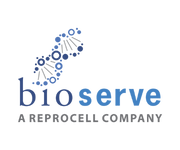CLINICAL DIAGNOSTICS
BRCA 1/2 Gene Testing
Breast Cancer Analysis or BRCA 1/2 Gene Testing
The BRCA gene test is a blood test that detects detrimental changes (mutations) in one of the two genes prone to breast cancer, BRCA1 and BRCA2 by using Next-Generation Sequencing Technology. Compared with the general population, individuals who inherit mutations in these genes are at higher risk for developing breast cancer and ovarian cancer.
For those who are likely to have an inherited mutation based on a personal or family history of breast cancer or ovarian cancer, the BRCA gene test is recommended.
Why BRCA gene Testing?
The BRCA gene test can assess if your DNA mutations increase your risk of breast cancer.
BRCA1 or BRCA2 mutations dramatically increase the risk of:
- Breast cancer
- Male breast cancer
- Ovarian cancer
- Prostate cancer
- Pancreatic cancer
- Melanoma
- This test result not only allows you to make informed decisions like taking steps to reduce the risk or prophylactic surgery but also helps your doctor to make treatment/ therapy decisions. For example, PARP inhibitors like Olaparib and Talazoparib, have been approved as therapies for BRCA-mutated metastatic breast cancer and ovarian cancer.
Who should consider gene testing for BRCA?
You could be at increased risk of getting an inherited gene mutation that raises the risk of breast and ovarian cancers and a genetic test nominee, if you have:
- Personal history of breast cancer diagnosed before age 50 and a second primary breast cancer, one or more breast cancer relatives or a family medical history that is unclear or limited.
- Personal history of diagnosed triple negative breast cancer at age 60 or younger.
- Medical history with two or more cancer forms.
- Family history of breast cancer in men.
- Family history of prostate or pancreatic cancer with two or more BRCA-associated cancer relatives.
What are the benefits of genetic tests?
- Genetic testing can help in making better medical and lifestyle choices for some women while relieving the anxiety of not understanding their genetic history. With both drugs and prophylactic surgery, you may also decide about prevention.
- Knowledge of genetic mutation in the patient can help in early or timely detection of mutations in close family members.
Why Bioserve - REPROCELL India?
- High precision and accuracy of the BRCA1 and BRCA2 genes are guarded with the sensitivity and specificity to detect SNVs and InDels.
- We provide a free pre-test and post-test genetic therapy session with trained experts who provide impartial insights into the risk, incidence, and recurrence of genetic disorders in individuals/families.
- Quicker Turnaround time, Competitive pricing and detailed clinical interpretations and links to drug response/efficacy wherever possible.
- The test has been validated in house and offers coverage range of 500-1000X.
Specimen Requirements
- BRCA1/2 Inherited Mutation Testing: 2 mL whole blood Lavender-top (EDTA) tube
- BRCA1/2 mutation testing in an Infected Patient: Tumour tissue (FFPE tissue: Paraffin block is preferred; percentage of tumour in the specimen should be > 30%)/Fresh or Frozen Biopsy
Our Other Panels!
We offer several cancer panels depending upon the needs of the Oncologists, these include..
BRCA Extended Panel
Profiling of 15 genes associated with hereditary Breast and Ovarian cancer, pancreatic and prostate cancer
HRR Gene Panel
Profiling of 30 genes associated with inherited cancers like Breast, Ovarian, pancreatic, colorectal, prostate and genes involved in Homologous recombination repair pathway
Inherited/Hereditary Cancers Panel
Profiling of >140 genes associated with inherited cancers like Breast, Ovarian, pancreatic, colorectal, prostate, and renal.
Comprehensive Cancer Panel
Examines 409 tumour suppressor genes and oncogenes frequently mutated in cancer.

